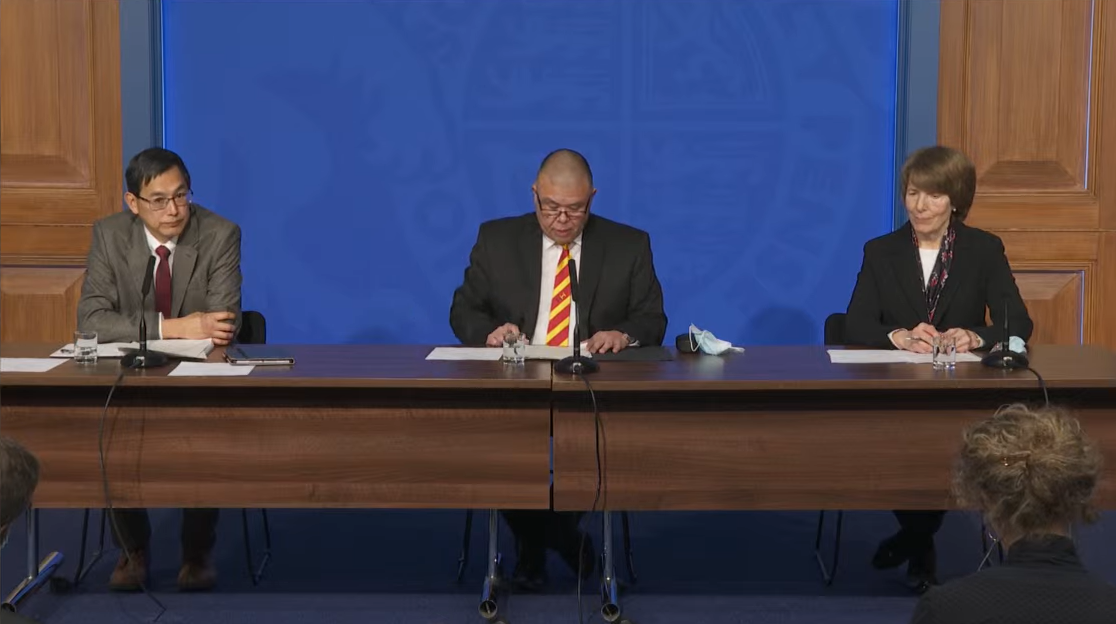All Adults To Be Offered Covid-19 Booster After Three-Month Gap To Tackle Omicron
5 min read
All over-18s are set to be offered a coronavirus booster jabs three months after their second dose as concern grows over the spread of the new Omicron variant of Covid-19.
The Joint Committee on Vaccination and Immunisation (JCVI) has confirmed that the gap between double vaccination and the booster will be cut from the current six months in a bid to extend immunity to more of the population.
People aged between 12 and 15 will be allowed their second dose of a coronavirus vaccine no sooner than 12 weeks after the first dose, the committee added.
Currently, only those aged 16 and 17 can book their second vaccine dose, with those aged 12 to 15 only able to book their first dose.
The JCVI also recommended that people who are seriously immunosuppressed and have had their booster dose should be offered a fourth dose in the coming months.
Health secretary Sajid Javid confirmed to the Commons shortly after that the government would be following the JCVI's recommendations.
"Our experience of fighting this virus has shown us that it's best to act decisively and swiftly when we see a potential threat, which is why we're building our defences and putting these measures in place without delay," Javid told MPs.
"Scientists are working at speed at home and abroad to determine whether this variant is more dangerous."
He added that if scientists found that the Omicron variant is "no more dangerous than the Delta variant" then current measures would not remain in "place for a day longer than necessary".
Booster jabs have previously only been available to those aged 40 and over. It is not yet clear when those under 40 will be able to book their booster dose.
“With any vaccine during a pandemic, we get the greatest benefit of the vaccine both for individuals and society if the vaccine is deployed before the wave starts,” Dr. Wei Shen Lim, chair of the COVID-19 for the JCVI, told reporters on Monday.
“If we deploy a vaccine in the middle of the wave or after even the peak of a wave, then the benefit from the vaccine is much lower.”
“Therefore, we want to provide boosters early enough such that it is before any possible wave.”
He added that expanding the booster rollout now was not “predicting that there will be a wave” of the Omicron variant, but added that “should there be a wave we want to be in the best possible position”.
Professor Jonathan Van-Tam, deputy chief medical officer addressed uncertainty around the Omicron variant, while scientists work desperately to establish how it could impact immunity provided by vaccines.
“We don't know what's going to happen next," he said.
“The next three weeks are going to be weeks of scientific uncertainty, but whilst we wait for the mist to clear on what this concerning variant actually means, there is no time to delay.

“It's our opportunity to get ahead, and vaccine boosting is the thing we can do most easily whilst we wait for that science mist to clear.”
The changes follow the discovery of the Omicron variant, first identified in South Africa.
It was announced on Monday that two further cases had been identified — bringing the total up to 11 from 9.
Dr Jenny Harries, chief executive of UK Health Security Agency (UKHSA) said officials expected more cases of the variant to be discovered in the coming days.
“It is very likely that we will find more cases over the coming days as we are seeing in other countries globally and as we increase case detection through focussed contact tracing," she said.
"That’s why it’s critical that anyone with Covid-19 symptoms isolates and gets a PCR test immediately."
She added that the UKHSCA was "continuing our efforts to understand the effect of this variant on transmissibility, severe disease, mortality, antibody response and vaccine efficacy".
Within hours of the first British cases being identified, Boris Johnson announced a range of new coronavirus measures on Saturday in order to "buy time for our scientists to understand exactly what we're dealing with".
Legislation making face coverings mandatory once more on public transport and in shops will go before MPs later on Monday and will come into effect at 4am on Tuesday.
Those who were confirmed contacts of the Omicron variant will also be required to self-isolate for 10 days regardless of their vaccination status.
All international arrivals into the UK will have to take a PCR coronavirus test within two days of their arrival and isolate until they received a negative result.
The Prime Minister’s spokesperson also defended the moves earlier on Monday.
“We need more time and the world needs more time to work out exactly what we’re dealing with," they said.
"It’s right to take a proportionate response, and that’s what this government has done.”
They added that new mask rules and an expanded booster program would bring an “additional layer of security" while detail of the risk of Omicron to public health is established.
Asked if further measures, such as shutting schools, should be taken, the spokesperson insisted the government’s current “precautionary approach” went far enough.
“We believe our measures strike the balance between keeping children in face-to-face learning while ensuring education settings remain as safe as possible while we investigate this new variant,” they continued.
“Education remains one of our top priorities, and so of course we’ll keep all measures under review.”
PoliticsHome Newsletters
PoliticsHome provides the most comprehensive coverage of UK politics anywhere on the web, offering high quality original reporting and analysis: Subscribe
